Meet the rural housewife, circa 1918. We’ll call her Mary.
Even two generations removed from her pioneer foremothers, she might live in what is best described as Log Cabin 2.0 with a half dozen stairstep children. Her husband might add more rooms as another half dozen children come along.
Life for the Marys was “hard, endless, dirty labor.” Dinnertime came from chickens the women had killed and plucked. They cooked it on stoves heated by wood they had chopped. Add in the bread they baked and the vegetables they grew. Washday meant hauling water from outside, heating it on the stove, boiling it in tubs and scrubbing it on washboards “until knuckles were raw.” Don’t forget “de-lousing the chicken coops,” “polishing the chimneys of kerosene lamps,” constant ironing and much, much more. “It was astonishing that they had any energy left.” 1
Meet a second-grader, circa 2018. We’ll call him Jacob.
Chances are high that he lives in an apartment with only one parent, most likely his mother. This is a frantic way to live. It stretches the money, time and attention of one adult far too thin. But it’s do-able. A dinner of chicken nuggets comes together in seconds. Even vegetables, already peeled and baby-sized, are so instant there’s no excuse for skipping them. On especially busy nights, mom can drop by the local Subway shop.
As for laundry, it may take all night, but it’s a passive chore. Possibly, it can be put it off a few more nights because, between hand-me-downs and thrift stores, Jacob might own a surprising number of t-shirts.
Keeping Jacob alive is a sun-up to sun-down job, but nobody can say they lost a morning to plucking chickens or washing diapers.
In the online world known as “The Bloggernacle,” you might hear a distinct hiss every time someone mentions the Proclamation on the Family.
Progressive Mormons who write, read and comment there resent the Church’s drumbeat of family, family, family. Single Mormons leave the church building every Sunday wondering if this religion has anything to offer them. Some members note that Jesus never said a word about family. 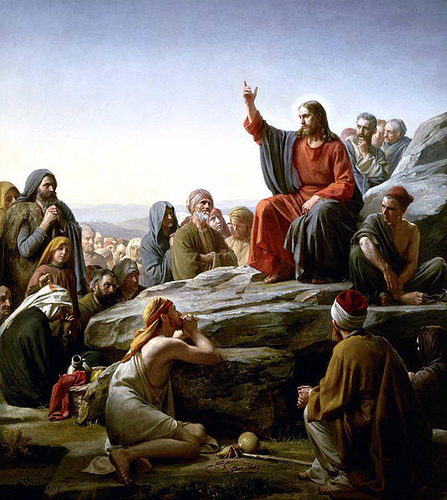
They ask: If we claim to be his church, why don’t we drop the subject altogether? Why don’t we get on with more important things, like feeding the hungry and making everybody feel included?
It’s true that Jesus never said “We must defend the family” or “We need fathers.” But did the Galileans really need to hear those words?
And what should the bearded apostles of Mary’s day have preached about it? So far as their audience knew, when men and women got together, babies happened. Then came diapers (cloth ones, you remember), which meant washday, which meant all day Monday, and those raw knuckles.
Who really needed to tell women, “Don’t try to raise them yourself”? Mary’s life resembled the middle ages more than it resembled Jacob’s. It made no sense to tell the father of her children to go away and leave us alone.
According to cultural historians, the ten most radical inventions of all time include the wheel and the light-bulb.
 They also include The Pill and penicillin. Millennia of humankind paid swift and severe consequences for having sex, consequences that might have made a girl think twice before giving in to the beggings of a horny suitor.
They also include The Pill and penicillin. Millennia of humankind paid swift and severe consequences for having sex, consequences that might have made a girl think twice before giving in to the beggings of a horny suitor.
Yet here we are, treating sex about as seriously as we treat Netflix.
Is it possible all this preaching on the family addresses the blind spots of a people living through a historical anomaly?
The point of the Pill was predictability. What woman, pre-pill, could be reasonably sure she could start a graduate degree without the interruption of a baby? Our Mary couldn’t start so much as a doily without having to change her plans.
For all the surprises and emergencies of our age, we still enjoy an unprecedented boon of predictability, of back-ups for our mistakes.
A blogger at By Common Consent wrote:
“I used to have a recurring stress dream that I was leaving on a trip, and in my haste, I realized that I hadn’t packed things I needed. . . . Now it doesn’t stress me out because I know that no matter where I go, I can buy deodorant, clothes, toothpaste, food, whatever. No cash? There will be an ATM, or better–they’ll take credit cards. If I need help, I won’t be stranded because my cell phone works no matter where I am.”
That’s quite a different trip than some pioneer woman on the trail. Crossing rivers with no bridges, rationing the flour and sugar, even finding water to drink in a land that was shockingly dry — a lot could go wrong and when it did, she looked death in the face.
She must have known an elemental fear completely foreign to us.
We only feel that fear once in a great while. According to historian and columnist Victor Davis Hanson, “Our generation became divorced from both nature and the muscularity of the physical, desperate ordeal of surviving. . . . The result . . . is a vicarious life.”
After Hurricane Katrina, I recall Shepard Smith of Fox News throwing hot barbs of blame at a government that cared so little, it allowed diabetic storm victims to die. Excuse me? I thought. This is a tragedy, yes, but where is the man’s sense of proportion? We live in a time of great technology and interdependence. A century ago, diabetics died. Today they live. Or they do as long as the trucks run and the drugstore stays open.
Said one hurricane survivor about post-storm conditions, “We’ve got to step forward to reach the Stone Age. We’re primitive people hoping for fire. We’re not even hunter-gatherers yet. . . . One day you’ve got this fully developed millennial life, and the next day, nothing.”
“Broad historical movements that profoundly transform human societies are difficult to discern in the short term. They extend over decades, often centuries, and affect the social fabric in multiple ways that are scarcely noticed by contemporary commentators but become perceptible in times of accelerated social change.” 2
The blogger suffering stress dreams is spared the short-term consequences of her forgetfulness by the boon of technology, of predictability.
The drunken concert groupie who scores a night with the lead singer back in his hotel room is spared the short-term consequences of the hook-up, via pills, penicillin or Planned Parenthood.
In a long-ago day when we couldn’t dodge those short-term consequences, we scarcely needed to worry about the long-term ones.
And what are those long-term consequences?
For the Jacobs, they will be “difficult to discern.” Nationally, children in single-parents households number 35%. In plenty of towns, half of the second-grade class divides their weekends between mom and dad, or floats like plastic bottles on a sea of custody battles. This is all the kids have ever known and, by now, all their parents remember. Drawing cause-and-effect lines between where Jacob is today and what we did fifty years ago to put him there is . . . Well, he’ll be wanting to kiss a girl long before he wants to chart the practical benefits of the traditional family (a family he might not be able to describe).
What do we know about the practical benefits of the traditional family?
“The essential public purpose of marriage is to attach mothers and fathers to their children and to one another,” says Jennifer Roback Morse, founder and president of the Ruth Institute.
These attachments benefit children in measurable ways. To name a few, children in intact families generally stay in school longer and delay sexual activity. They live safer, more prosperous lives. 3
And don’t forget the intangible benefits. In his book Coming Apart, Charles Murray compares two communities: “Belmont,” a Boston suburb of physicians, professors and business executives, and “Fishtown,” a Philadelphia neighborhood of plumbers, hospital orderlies and high-school drop-outs. In “Belmont,” by the way, people marry before they have kids. In “Fishtown,” an intact family is as rare as a wallaby in Wyoming.
Citing letters and essays from our Colonial era, Murray notes what they agree on, which is that America possessed four founding virtues: industriousness, honesty, marriage and religion. Colonial America regarded the family as the schoolroom of a “national morality.”
Murray argues that this schooling forms not only the character of the children, but the parents. “Marriage is a strong and vital institution not because the day-to-day work of raising children and being a good spouse is so much fun, but because the family has responsibility for doing important things that won’t get done unless the family does them.” 4 
Like oxygen from trees, this sense of duty wafts out into the community. Parents want a good place to raise their children. They seek out good schools. They lend their effort to “everything from getting a new swing set for the park to prompting the city council to install four-way stop signs on an intersection where children play,” says Murray.5 The result is “an elaborate web of expectations, rewards, and punishments evolving over time. Together, that web leads to norms of good behavior that support families and communities in performing their functions.”6
Murray calls it “social capital.” It’s “raw material is social trust–not trust in a particular neighbor who happens to be your friend, but a generalized expectation that the people around you will do the right thing.”7 It is a belief in “generalized reciprocity—I’ll do this for you now, . . . confident that down the road you or someone else will return the favor.”8
And in Fishtown, that social capital is broken nearly beyond repair. Drawing on longitudinal studies, Murray paints a sharp picture of long-term consequences, of hassles that, lived day to day, seem no more remarkable than the dust on Toyota’s dashboard. Yet those hassles descended from countless decisions made by countless people back in a foggy past. In Fishtowns all over America, people are “losing the virtues required to be functioning members of a free society.”9 And the Belmonts, “have become so isolated that they are often oblivious to the . . . problems that exist elsewhere.”10
Murray anticipates readers who might accuse him of condemning the lower classes simply for not aping their betters. Not so, he says. Most members of the lower class “don’t have anything obviously wrong with them. A better way to think about the new lower class is in terms of your own extended family or in terms of the stories your friends have told you about their families. At least a few relatives in those circles will be people who have never quite gotten their acts together [and] are the despair of the parents and siblings, even though they seem perfectly pleasant when you meet them. . . .”11
“If one adult man lives with his hard-pressed sister and her family because he can’t manage to hold on to a steady job, that puts a lot of stress on the sister’s family. If many adult men in a community are living off relatives or girlfriends, that puts lots of stress on the community. . . . The empirical relationships that exist among marriage, industriousness, honesty, religiosity, and a self-governing society mean that the damage is done, even though no one intends it.” 12
So here we are, in the the world that we have created for ourselves. Puberty and Jacob will soon collide. In about five years, he will look around for clues on what to do with all the hormones.
He will see a world with few short-term consequences for ignoring traditional morality. Some of us still look for new taboos to break. Some of us bend over backwards to ignore the obvious. Some of us say, “I think families are nice and desirable, but I just don’t think they are the key to salvation,”13 or “I don’t see how other people’s gay marriage affects my marriage.”14
This kind of seeing and thinking ignores the still-functional bridge on which you and I stand, its pilings built and it bolts tightened by generations of “mothers and fathers [attached] to their children and to one another.” No doubt, those generations weren’t a perfect succession of legitimate babies. But they self-corrected often enough that here we are, alive, fed, and educated.
For Jacob, that bridge is now missing additional chinks and bolts, with more coming loose every day. I know a Jacob or two, and they already think you don’t have to be married to have a baby, because they live in a world shaped by our unprecedented control over nature. It’s a world both advanced — we carry phones in the palm of our hand — and ignorant; who among us could take that phone apart, then rebuild it?
It’s a world where we dance near the edge of the cliff. There’s a fence there. There’s always been a fence, right?
What’s the most useful thing God can say to a people like this?
I sympathize with some complaints against the Proclamation on the Family.
They never consulted the women.15 And they told us, the women, that we are nurturers. I assume the “fathers provide, mothers nurture” phrase is their attempt to show that a male and a female parent each bring distinct, different and necessary gifts to a child’s life. Still, we ladies get tired of being told what we “are,” what we think, what we feel. If they had asked us, we could have set them straight on some of their overly-rosy ideas.
Yet these complaints are not enough to toss the Proclamation on the Family into the same dust heap where we threw all our 1950s womens’ magazines.
In a world where it is possible to make babies in test tubes, to grow them in surrogates, then place them in the care of two dads or a 52-year-old career woman or even resort owners in the Adirondacks, is it inconceivable that God could look down on all this and not think, I’ve got something to say?
These people have some serious blind spots.
These people need a reminder that “[M]y work and my glory [is] to bring to pass the immortality and eternal life of man”;16
That “I created the earth that it should be inhabited”;17
That the biological task of “inhabiting” it is still heterosexual work, no matter how many turkey basters they enlist;
That the social task of “inhabiting” must equip them with the life skills to solve their problems, as well as the cultural skills to keep the whole project going.
[A] culture and a society are not things run for the convenience of the people who happen to be here right now, but a deep pact between the dead, the living and those yet to be born. In such a view of society, however greatly you might wish to benefit from . . . the salving of a generation’s conscience, you still would not have the right to wholly transform your society. Because that which you inherited that is good should be passed on. Even were you to decide that some of the views or lifestyles of your ancestors could be improved upon, it does not follow that you should hand over to the next generation a society that is chaotic, fractured and unrecognisable.” 18
The Family Proclamation addresses this deep pact. With all the changes between ancient and modern life, it names the changes we can’t afford: “Children are entitled to birth within the bonds of matrimony, and to be reared by a father and a mother who honor marital vows with complete fidelity.”
That it debuted at a sermon in the Conference Center instead of The Sermon on the Mount bolsters the whole idea of modern revelation.
It tells me that God knows his target audience.
And it tells me that He wants, even more than I do, for the Jacobs I know to have a good life.
Photo credits:
Rural housewife: UpNorth Memories – Donald (Don) Harrison on VisualHunt / CC BY-NC-ND
Second-grader: sean dreilinger on VisualHunt.com / CC BY-NC-SA
Sermon on the Mount: roberthuffstutter on Visual hunt /CC BY
Inventions: brizzle born and bred on Visualhunt/ CC BY-ND
Covered wagon: Tom Simpson on Visualhunt.com / CC BY-NC-ND
Grocery store: Anthony Albright on VisualHunt / CC BY-SA
Girl with bubble: Visual hunt
Bolts: wildrosetn39 on Visualhunt / CC BY
Van Camp’s housewife: classic_film on VisualHunt.com / CC BY-NC
Clouds and sunbeams: Ib Aarmo on Visualhunt / CC BY-NC-ND
- Baker, Russell, Growing Up, Rosetta Books, E-book edition, pp. 115-116
- Bat Ye’or, Eurabia (Teaneck, NJ: Fairleigh Dickinson University Press, 2005), p. 9
- See also: http://www.usccb.org/issues-and-action/marriage-and-family/children/children.cfm; https://www.yourazlawfirm.com/40-facts-two-parent-families/
- Murray, Charles, Coming Apart: The State of White America, 1960-2010
(New York: Crown Forum, 2012) Pg. 282 - Murray, Charles, Pg. 245
- Murray, Charles, Pg. 282
- Murray, Charles, Pg. 247
- Murray, Charles, Pgs. 247 – 248
- Murray, Charles, Pg. 285
- Murray, Charles, Pg. 285
- Murray, Charles, Pg. 209
- Murray, Charles, Pgs. 209-210
- https://bycommonconsent.com/2015/03/28/what-has-two-thumbs-and-doesnt-give-a-crap-about-the-family/, comment by MagpieLovely, March 29, 2015 at 7:57 am
- https://bycommonconsent.com/2015/03/28/what-has-two-thumbs-and-doesnt-give-a-crap-about-the-family/, comment by Loch, March 29, 2015 at 8:59 am
- http://zelophehadsdaughters.com/2013/02/19/who-wrote-the-proclamation-on-the-family/; see comments by Exponent II April, by Emig, by Nadine, by LRC, by Melody, and by Lorie
- Moses 1:39
- 1 Nephi 17:36
- Murray, Douglas, The Strange Death of Europe, Pp. 295-296 London: Bloomsbury, 2017


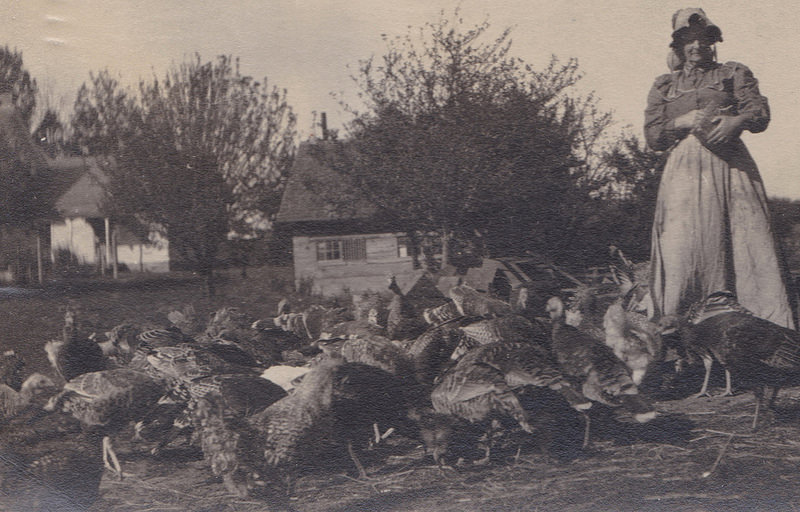






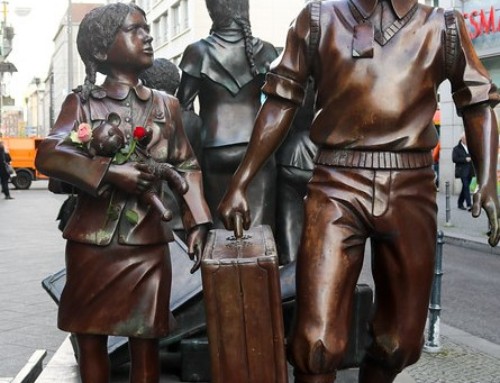
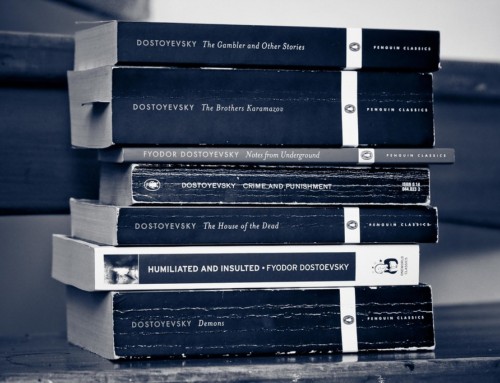

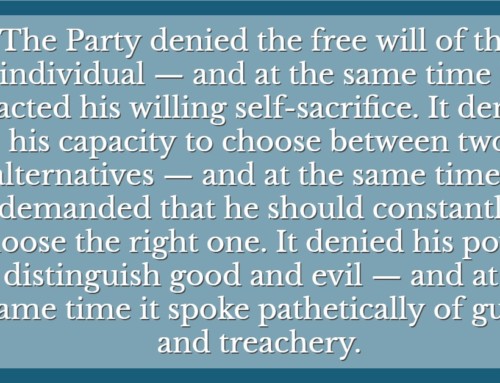
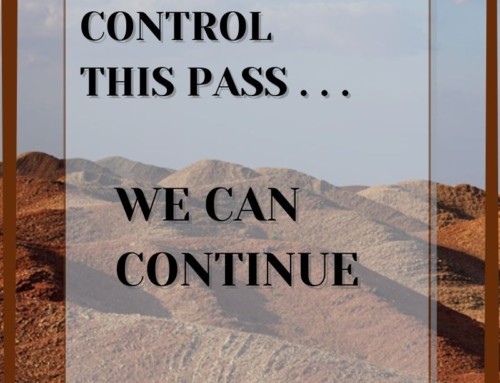
Leave A Comment